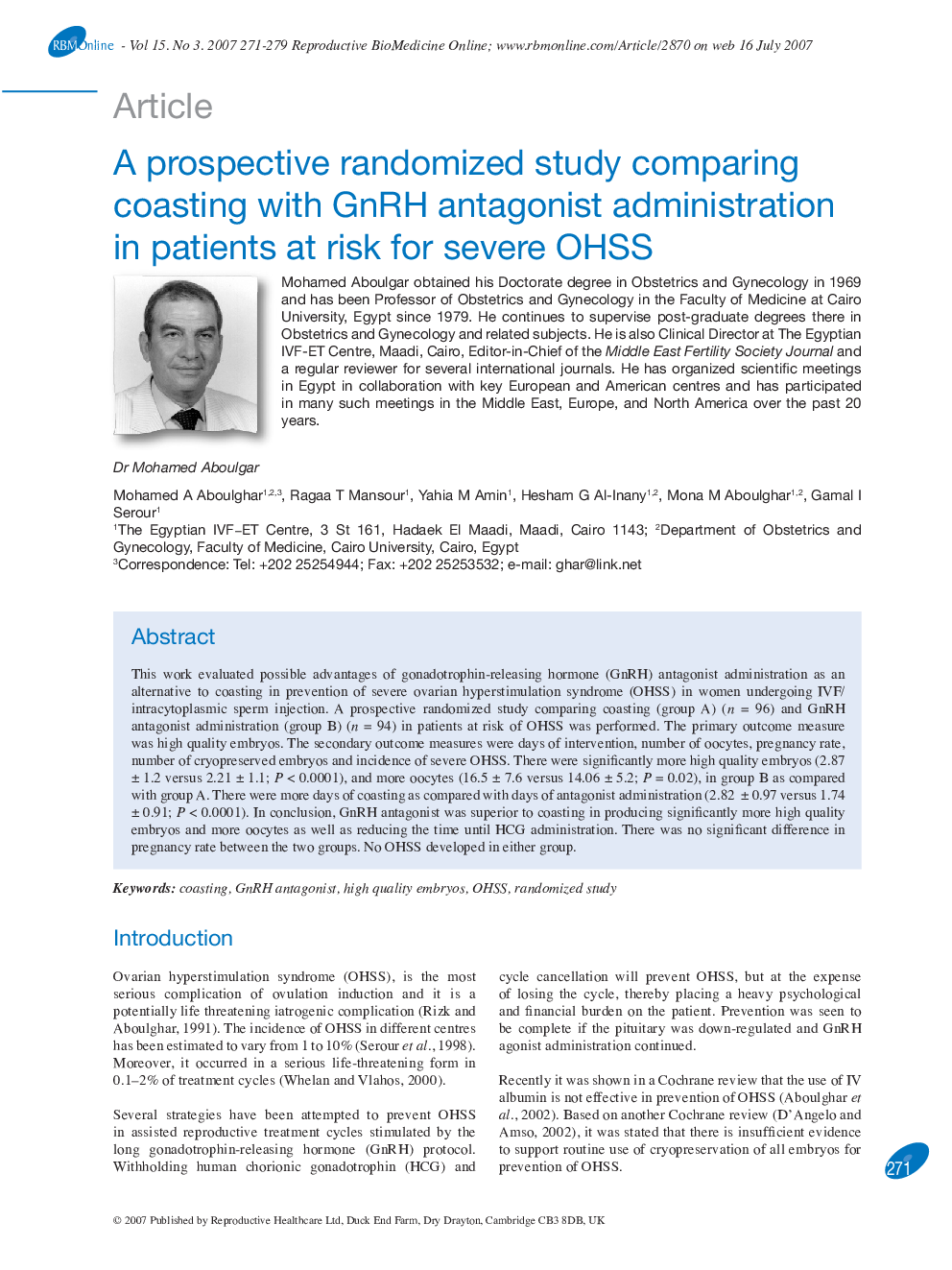| Article ID | Journal | Published Year | Pages | File Type |
|---|---|---|---|---|
| 3971455 | Reproductive BioMedicine Online | 2007 | 9 Pages |
This work evaluated possible advantages of gonadotrophin-releasing hormone (GnRH) antagonist administration as an alternative to coasting in prevention of severe ovarian hyperstimulation syndrome (OHSS) in women undergoing IVF/intracytoplasmic sperm injection. A prospective randomized study comparing coasting (group A) (n = 96) and GnRH antagonist administration (group B) (n = 94) in patients at risk of OHSS was performed. The primary outcome measure was high quality embryos. The secondary outcome measures were days of intervention, number of oocytes, pregnancy rate, number of cryopreserved embryos and incidence of severe OHSS. There were significantly more high quality embryos (2.87 ± 1.2 versus 2.21 ± 1.1; P < 0.0001), and more oocytes (16.5 ± 7.6 versus 14.06 ± 5.2; P = 0.02), in group B as compared with group A. There were more days of coasting as compared with days of antagonist administration (2.82 ± 0.97 versus 1.74 ± 0.91; P < 0.0001). In conclusion, GnRH antagonist was superior to coasting in producing significantly more high quality embryos and more oocytes as well as reducing the time until HCG administration. There was no significant difference in pregnancy rate between the two groups. No OHSS developed in either group.
